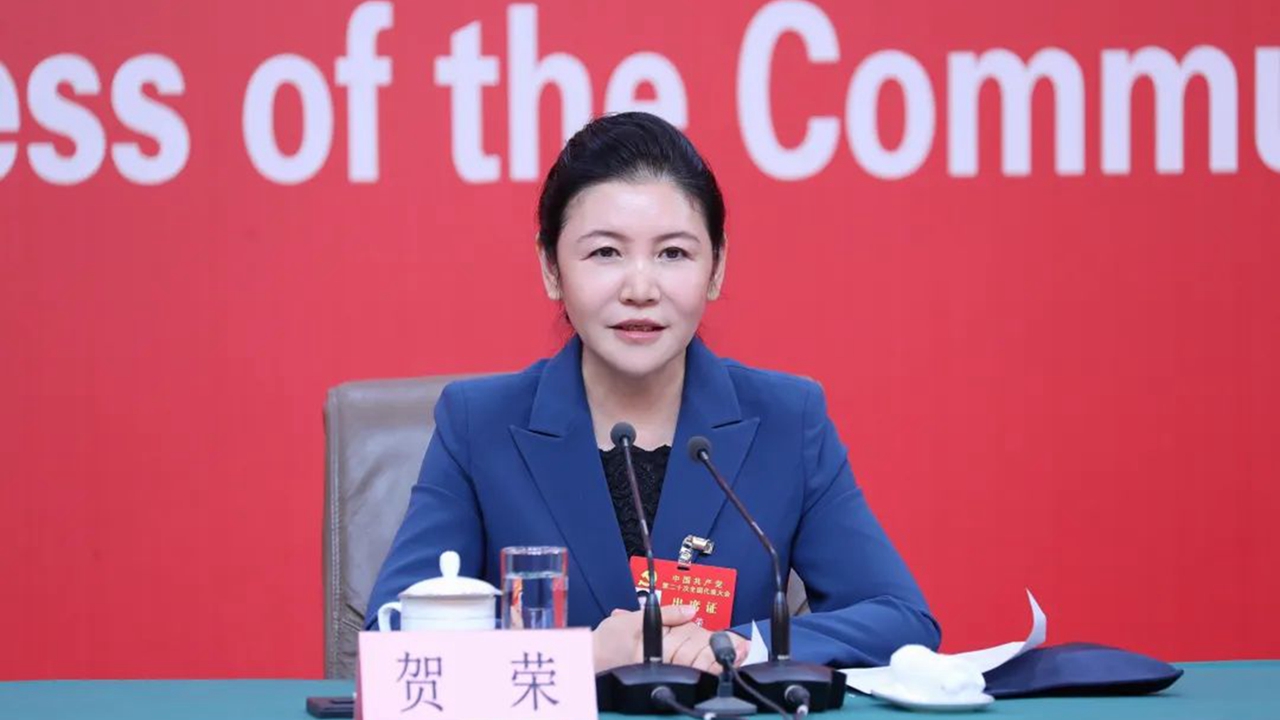China to step up judicial protection of IPR: senior judge
Chinese judicial agencies will step up protection of intellectual property rights (IPR) in a bid to support the country’s drive to achieve greater self-reliance and strength in science and technology, a senior judge said yesterday.
Sound rules will be introduced to protect IPR in sectors such as big data, artificial intelligence and genetic technologies, and judicial actions will be enhanced against monopolies and unfair competition, He Rong, vice president of the Supreme People’s Court (SPC), told a press conference on the sidelines of the ongoing 20th National Congress of the Communist Party of China.

He Rong, vice president of the Supreme People’s Court (SPC), tells a press conference on the sidelines of the ongoing 20th National Congress of the Communist Party of China yesterday. Xinhua
Greater efforts will be made to regulate and guide the sound development of capital, He said, adding that judicial agencies will also advance international cooperation and exchanges.
Over the past decade, China has made notable progress in judicial protection of IPR, according to He.
The number of IPR lawsuits closed in the first instance has totaled 2.74 million since 2013, registering an average yearly increase of 24.5%, she said.
Lawsuits concerning IPR have covered a wide scope of cases involving patents, trademarks, copyrights, business secrets, integrated circuit designs, new plant species, geographic indications, monopolies and unfair competition.
Consumers’ rights and the rights of people having new forms of employment have been better protected.
The IPR court under the SPC and four specialized courts for IPR in Beijing, Shanghai, Guangzhou and the Hainan Free Trade Port have facilitated the country’s reform on IPR case settlement.
With persistent efforts to ensure foreign entities enjoy equal legal protection in China, more and more foreign enterprises have settled their IPR disputes at Chinese courts.
Also at the conference, Xu Ganlu, vice minister of public security, said China is widely acknowledged as one of the safest countries in the world.
Noting that China is one of the countries with the lowest homicide rate and the lowest number of gun- and explosives-related cases, Xu said the country has witnessed significant drops in the numbers of criminal cases and safety accidents over the past decade.
The number of major criminal acts including homicides and rapes in 2021 was 64.4% lower than that of 2012, while the numbers of drug-related crimes, robberies and thefts also dropped by 56.8%, 96.1% and 62.6%, respectively, Xu said.
According to a survey conducted by the National Bureau of Statistics in 2021, some 98.6% of those polled felt safe living in China, up by 11 percentage points from 2012, he said.
The vice minister said some 3,800 police officers had sacrificed their lives in the past 10 years in the process of defending social security and stability.
Nonetheless, Xu said China will continue to crack down on organized crime and root out local criminal gangs on an ongoing basis and focus its efforts on serious criminal offenses of major concerns to the public, to better safeguard national security, social stability and interests of the people.